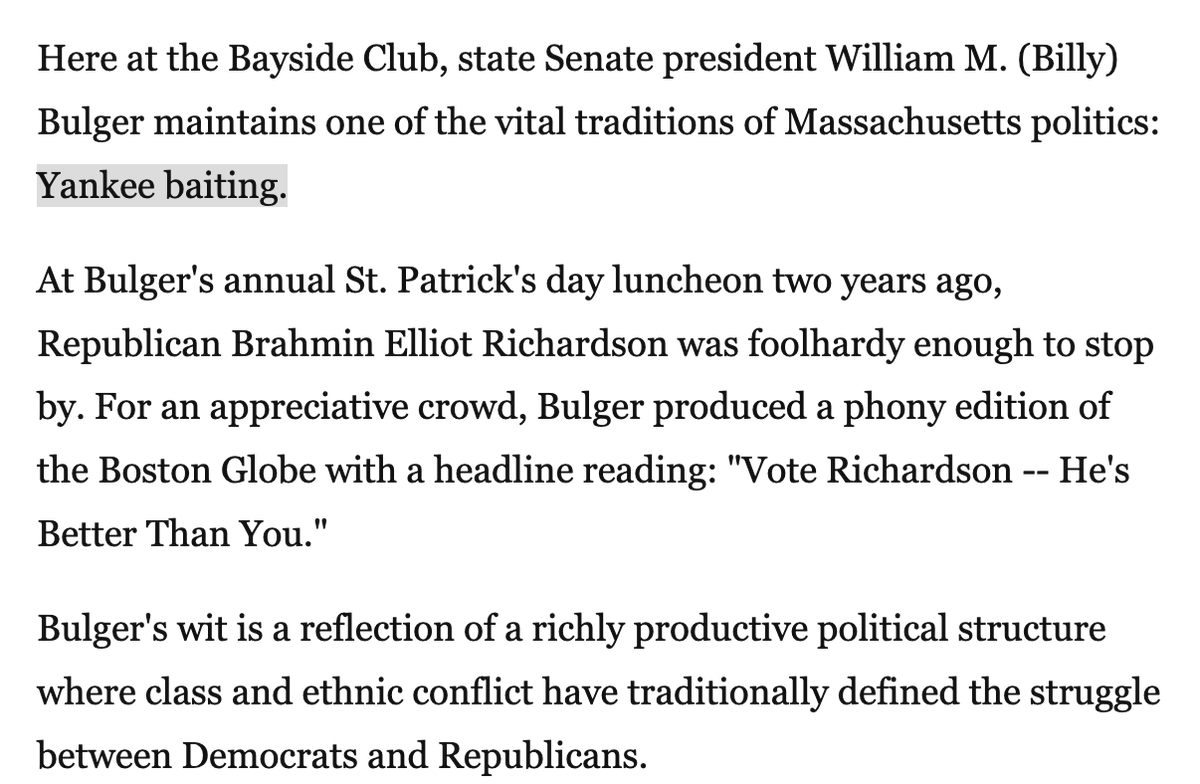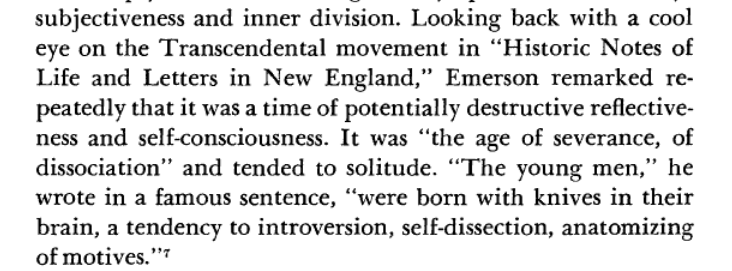
Lol at "...he made a reference to Emerson--I don't know where Emerson talks about decentralization...but these ideas seemed radical to me."
soundingsjohnbarker.wordpress.com/2015/06/05/196…
soundingsjohnbarker.wordpress.com/2015/06/05/196…
https://twitter.com/kerry62189/status/1483311412697083907

Basically sounds like he wanted to be an old-school Republican. Which the Kennedys likely would have been had it not been for the anti-Catholic bias among MA Republicans at that time. Successful Dem. presidents usually incorporate some elements of old-school Republicanism. 

"[RFK] found in Ralph Waldo Emerson's thesis of self-reliance the alternative to big government as a way to cure poverty."
publishersweekly.com/978-0-312-1862…
publishersweekly.com/978-0-312-1862…

"Furthermore, Beran argues that by passing through the furnace of family tragedy, Kennedy had become both Greek and Emersonian."
That's a strange line.
That's a strange line.

Lol, another "X is credited with coining this term in 1970, although Emerson actually used it 1842." 

• • •
Missing some Tweet in this thread? You can try to
force a refresh
































